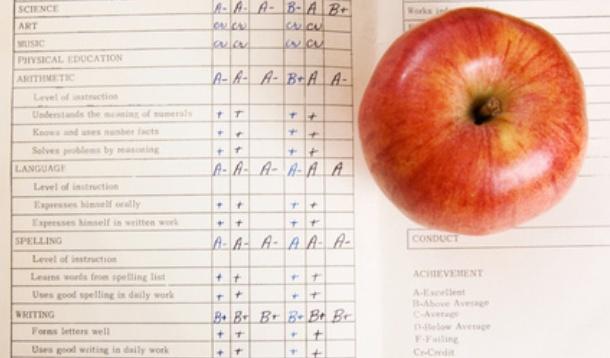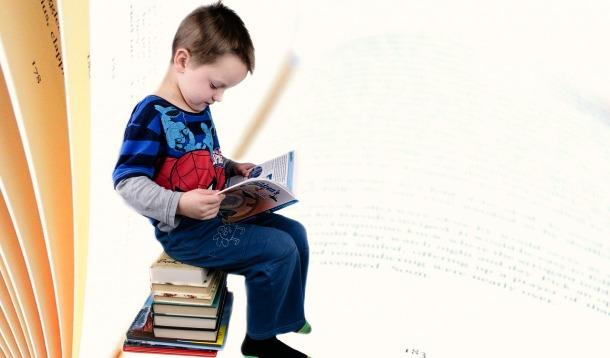
When my daughter was about 4 months old we went into Parent and Tot swimming and at the end, she received her first report card. On bright pink paper adorned with stickers and drops of pool water, yet I still tucked that precious paper away in her keepsake box. At the time, her skill set included drooling and holding her head up and her “swimming” ability was based solely on my bouncing her around and singing songs while in the water, but still, somehow, the report card signified an achievement. That paper shows my baby put in the required effort and completed something.
These days, in Ontario, school report cards are all over the news. Due to current job action, teachers, under the direction of their union, were advised to continue assessing and evaluating students, as they always had. However, they were also advised to only provide to principals a list of student names and their final grades. The Toronto District School Board, among others, at first chose not to issue report cards at all and then, perhaps due to pressures from teachers, families and the media, decided to issue these final marks to students and their families. The report cards will not include any comments.
So that brings up the question: what is the point of report cards, anyway? How useful are they? Do the marks tell the story? Do the comments?
When I became a teacher I was excited about creating report cards for my students. I enjoy communicating in writing. It gives me time to consider my message before I speak and to get my ideas across without interruption. I envisioned well-thought out comments that painted a vivid picture of students in their learning environments. And then I discovered teachers were confined to a prescribed set of comments and were merely to pick the most appropriate. There was little wiggle room for my flowing prose to describe the classroom experience. There was a bit more leeway when it came to the “Learning Skills” section, but there were still parameters.
Now, I get that perhaps teachers needed some guidance on report writing and that a free-for-all style would make it difficult to compare reports from different teachers - but a drop down menu of comments? It crushed my poor writer’s heart.
The marks tell some of the story and I guess prepare the students for higher education, in which transcripts don't include a single comment. During elementary school, marks in the A range, mean your child is above the provincial level, marks in the B range mean they meet provincial standard and in the C range tell you your child is falling below the standard. Obviously, each teacher interprets “provincial standard” through their own lens, but there are exemplars and benchmarks available to help standardize the process.
For me, the comments now merely serve as a jumping off point for further communication between parent and teacher. If your child receives a C- in math with a comment that says something like “With support, can interpret data from various charts and graphs.” it means that your child isn’t up to the expected standard of reading graphs. I wish we could just write that on the report card, but alas. I use that “Ministry approved” comment as a topic for our parent-teacher interview. I would say something like, “So, Johnny is having trouble reading graphs.” Then I’d proceed to outline what I think is getting in the way of this skill, what I’ve done to help him master it and how a parent can support at home.
Sure, the current report card comments in Ontario aren’t ideal for really informing families about their child’s progress, which is part of the teachers refusal to write them this year. However, they do provide an outline for greater conversations. If a teacher has concerns about a student’s progression, they should continually be sharing such concerns with parents- long before report time. If parents have concerns they should address them with the teachers. Parents are entitled to open lines of communication with the school, for the entire academic year.
We need report cards, but they are, after all, just a piece of paper - limited in scope and only able to relay a tiny bit of the information needed.
Yet, whatever the limitations, it sure is nice to have a record of achievement. Schools need to be able to track student performance and have some common language to share this information between teachers, grades and schools. Hopefully soon we will be able to write them in a more direct, meaningful manner. But, until then, I still need something to put in my daughter’s keepsake box. Useful or not, I will still be saving all those bits of paper signifying, "You did it, kid. Job well done!"
